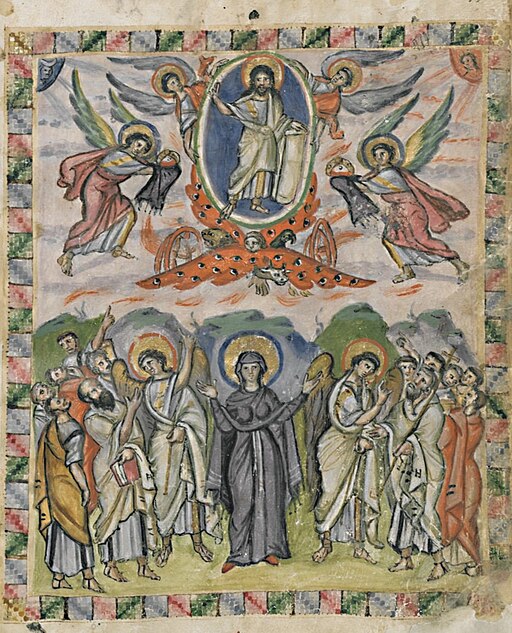



Genenis 5:24 (KJV) And Enoch walked with God: and he was not; for God took him.
Mark 16:19 So then after the Lord had spoken unto them, he was received up into heaven, and sat on the right hand of God.
Rev. 12:5 And she brought forth a man child, who was to rule all nations with a rod of iron: and her child was caught up unto God, and to his throne.

